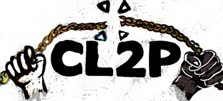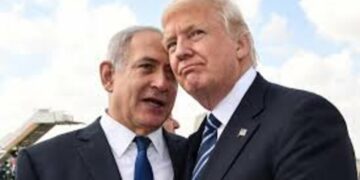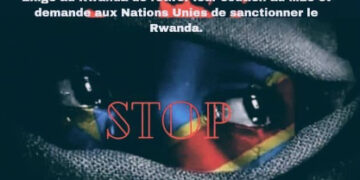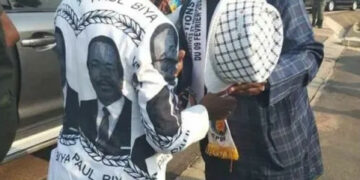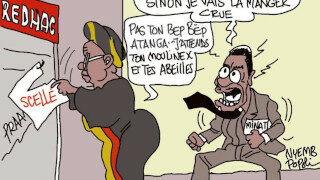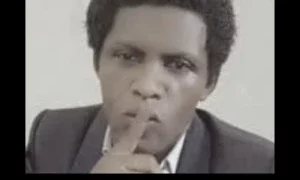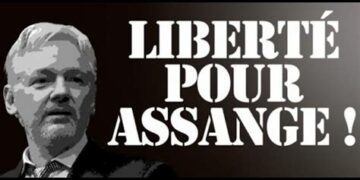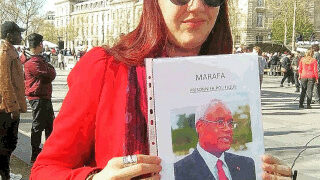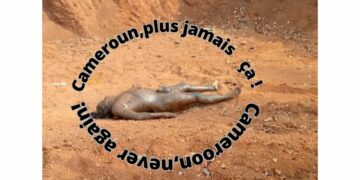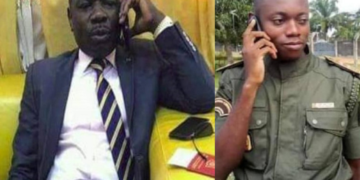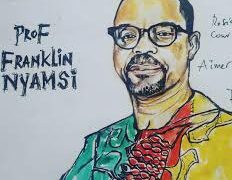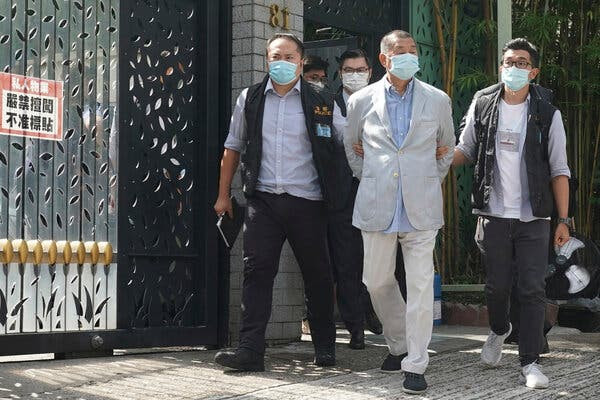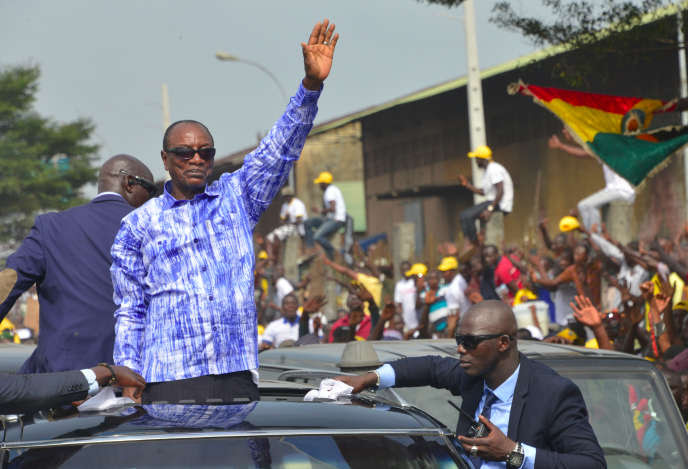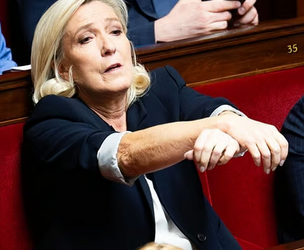Hongkong : arrestation du patron de presse contestataire Jimmy Lai

Il se savait en sursis. Le magnat hongkongais Jimmy Lai a été arrêté, lundi 10 août, et son groupe de presse perquisitionné au nom de la loi controversée sur la sécurité, une nouvelle étape dans la reprise en main musclée de l’ex-colonie britannique par Pékin.
Le richissime septuagénaire a été interpellé chez lui vers 7 heures (1 heure à Paris), a annoncé à l’Agence France-Presse (AFP) Mark Simon, un de ses proches collaborateurs, en précisant que d’autres membres de son groupe de presse avaient eux aussi été arrêtés.
Dans un communiqué, la police a fait état de sept arrestations pour des soupçons de collusion avec des forces étrangères – une des infractions visées par la loi sur la sécurité nationale qui a été imposée fin juin par Pékin – et de fraude.
Considérée comme une réponse de Pékin aux mois de manifestations prodémocratie qui avaient ébranlé le territoire en 2019, la loi donne aux autorités de nouveaux pouvoirs pour réprimer quatre types de crimes contre la sécurité de l’Etat : la subversion, le séparatisme, le terrorisme et la collusion avec des forces extérieures. Nombre de militants prodémocratie dénoncent un texte liberticide qui vient en finir avec le principe « Un pays, deux systèmes » qui avait présidé à la rétrocession en 1997 et garantissait théoriquement aux Hongkongais, jusqu’en 2047, des libertés inconnues dans le reste de la Chine.
Déjà arrêté en février
Jimmy Lai, 72 ans, est le patron de Next Digital, qui compte notamment le quotidien Apple Daily et le magazine Next, deux titres ouvertement prodémocratie et critiques de Pékin. Il a déjà été arrêté en février pour avoir participé à une marche non autorisée quelques mois auparavant.
En fin de matinée, des dizaines de policiers se sont présentés au siège du groupe de presse, sur une zone industrielle du quartier de Lohas Park (sud-est). Des journalistes d’Apple Daily ont diffusé en direct sur Facebook les images de cette perquisition. « Vous imaginez la même chose dans les rédactions du New York Times ou du Guardian ? » s’est insurgé l’activiste Joshua Wong sur Twitter.
Sur les images, le rédacteur en chef du quotidien, Law Wai-kwong, apparaît en train de demander aux policiers leur mandat. « Dites à vos collègues de ne rien toucher avant que nos avocats ne vérifient le mandat », leur intime M. Law. Les policiers ont ordonné aux journalistes de se lever et de s’aligner pour des vérifications d’identité, alors que d’autres fouillaient la salle de rédaction, et M. Lai a été amené sur les lieux. M. Simon a précisé sur Twitter que des perquisitions avaient aussi eu lieu au domicile du magnat et à celui de son fils.
Article réservé à nos abonnés Lire aussi A Hongkong, la loi de sécurité nationale brouille l’avenir de l’Internet libre
Un « traître » pour Pékin
Pour beaucoup de Hongkongais engagés dans la mouvance prodémocratie, M. Lai est un héros, un patron de tabloïd qui a bâti sa fortune seul, et le seul patron de presse hongkongais qui tienne tête au pouvoir central chinois.
Mais dans les médias officiels chinois, il est dénoncé comme un « traître », un inspirateur des immenses manifestations prodémocratie qui ont eu lieu à Hongkong et le chef d’un groupe de personnalités accusées de conspirer avec des nations étrangères pour nuire à la Chine. Les accusations de collusion avec une puissance étrangère ont redoublé l’an passé, quand M. Lai a rencontré le secrétaire d’Etat américain, Mike Pompeo, et le vice-président, Mike Pence.
A la mi-juin, deux semaines avant l’imposition de la nouvelle loi sur la sécurité nationale, Jimmy Lai déclarait à l’AFP qu’il s’attendait à être arrêté. « Je suis prêt à aller en prison, disait-il. Si cela arrive, j’aurai l’opportunité de lire des livres que je n’ai pas encore lus. La seule chose que je puisse faire est d’être positif. » Il décrivait alors la nouvelle loi comme « le glas pour Hongkong ». « Elle va remplacer notre régime légal et détruire notre statut financier international », disait-il.
Les autorités chinoises et hongkongaises ont affirmé que ce texte controversé n’aurait aucun impact sur les libertés dans le territoire semi-autonome et ne visait qu’une minorité de personnes. Les semaines qui ont suivi son adoption ont cependant confirmé une crispation brutale à Hongkong, avec une répression accrue contre les membres du mouvement pour la démocratie.
Les autorités chinoises ont annoncé, lundi 10 août, la mise en place de sanctions à l’encontre de onze responsables américains, dont les sénateurs républicains de Floride, Marco Rubio, et du Texas, Ted Cruz.
Selon un porte-parole de la diplomatie chinoise, Zhao Lijian, les personnes visées « se sont mal comportées sur les questions liées à Hongkong ». Il a, par ailleurs, ajouté que le directeur exécutif de l’association de défense des droits de l’homme Human Rights Watch, Kenneth Roth, était également ciblé par ces sanctions, de même que les responsables des organisations Fondation nationale pour la démocratie, International Republican Institute et le centre de réflexion National Democratic Institute for International Affairs. M. Zhao Lijian n’a pas précisé la nature de ces sanctions.
Cette décision de Pékin fait suite à des mesures similaires prises par les Etats-Unis, vendredi 7 août, contre onze personnalités politiques de Chine continentale et de Hongkong, dont la chef de l’exécutif local, Carrie Lam. Elles sont accusées de chercher à restreindre l’autonomie du territoire ainsi que « la liberté d’expression ou de rassemblement » de ses habitants.
Le Monde avec AFP
[spacer style="1"]
Hong Kong Arrests Jimmy Lai, Media Mogul, Under National Security Law
The pro-democracy figure is the most high-profile person detained under the sweeping law imposed by Beijing on the semiautonomous territory.


By Austin Ramzy and Tiffany May
-
Published Aug. 9, 2020 New York Times
HONG KONG — The Hong Kong police on Monday arrested seven people, including Jimmy Lai, the media tycoon and critic of the Chinese Communist Party, on charges of violating the territory’s new national security law.
Mr. Lai’s arrest makes him the most high-profile target of the sweeping legislation imposed by Beijing. It also highlighted concerns that the new security law would be used to silence critical voices and curb the city’s freewheeling press as part of a broader move against democracy advocates.
Mr. Lai’s company, Next Digital, publishes Apple Daily, a fiercely pro-democracy newspaper that regularly takes on the Hong Kong government and the Chinese leadership. He is often denounced by Chinese officials, pro-Beijing news outlets in Hong Kong and China’s state-run news media.
The newspaper livestreamed video footage of more than 100 police officers turning up in force and raiding Next Digital’s headquarters on Monday morning. Officers were seen rifling through papers on journalists’ desks as Mr. Lai and the company’s chief executive, Cheung Kim-hung, were led through the offices in handcuffs. Officers cordoned off Mr. Lai’s office and several reporters’ cubicles for searches, photos shared on social media showed.
Apple Daily reported that Mr. Lai, 72, was being investigated on charges of collusion with a foreign country or external elements. Mark Simon, a senior executive with Next Digital, said that Mr. Lai’s two sons had also been arrested. They were being investigated for violations of the company business code. He noted that Mr. Lai’s sons were not affiliated with Apple Daily, which suggests that the authorities were investigating Mr. Lai’s private investments. A number of senior Next Digital employees were also being questioned at their homes, Mr. Simon said.
When a reporter asked Mr. Lai about the arrest and the raid, he replied, “How should I think about it?”
Radio Television Hong Kong, a government-funded broadcaster that has drawn fire for its aggressive coverage of the police, said on Monday that its reporters had been temporarily blocked from a police briefing at the scene. RTHK said it had been told by the authorities that news outlets that had obstructed the police in the past were not allowed to attend. The information could not be independently verified. Much of the area surrounding Apple Daily’s headquarters were cordoned off and journalist access restricted.

The police said in a statement on Facebook that officers had entered a building in Tseung Kwan O, the location of Apple Daily’s headquarters, with a search warrant in order to investigate national security offenses. An Apple Daily reporter said that police officers had loaded bags of documents taken from the building onto a truck.
Livestream footage also showed plainclothes officers at a different location, a restaurant in the Central district owned by one of Mr. Lai’s sons. They removed a crate filled with electronic seized devices and loaded the crate into a private vehicle. They did not respond when reporters asked whether they were national security officers and whether they had search warrants.
The new security law has left Hong Kong residents scrambling to erase their digital footprints of messages that previously expressed support for democracy in the territory. Stores and other businesses also pulled down posters backing the democracy movement.
Last month, Hong Kong barred 12 pro-democracy candidates like Joshua Wong from an upcoming legislative election and postponed the election by a year, citing the coronavirus pandemic. Many in the opposition camp said the move was most likely made to prevent a defeat of pro-Beijing candidates.
The crackdown in Hong Kong has spurred other governments to take action: Australia, Britain, Canada and New Zealand have suspended their extradition treaties with Hong Kong, citing concerns around the new security law. China has retaliated in kind.

Australia, Canada, New Zealand, Britain and the United States said in a joint statement on Sunday that they were “gravely concerned by the Hong Kong government’s unjust disqualification of candidates” and by the security law, which was “eroding the Hong Kong people’s fundamental rights and liberties.”
On Friday, the Trump administration sanctioned Carrie Lam, Hong Kong’s chief executive, and 10 other senior officials over their roles in suppressing dissent.
Mr. Lai was previously arrested in February and accused of participating in an unauthorized protest last year. He faces charges for joining an unauthorized vigil on June 4 to mark the anniversary of the 1989 Tiananmen crackdown by Beijing.
The police have also arrested about 15 people under the security law, including several who participated in protests and four activists accused of posting messages online. One person, a man who collided with the police while riding a motorcycle with a flag that read, “Liberate Hong Kong, Revolution of Our Times,” was charged with inciting secession and terrorism.
It was not immediately clear exactly what specific action by Mr. Lai led to his arrest.
He traveled to Washington last year and met with Vice President Mike Pence, Secretary of State Mike Pompeo and Speaker Nancy Pelosi of California, among others. The national security law stipulates, however, that it can be applied only to activities that occur after it went into force, at the end of June.
Mr. Lai previously said he believed the new law would be used against him.
“I have always thought I might one day be sent to jail for my publications or for my calls for democracy in Hong Kong,” he wrote in an Op-Ed article for The New York Times. “But for a few tweets, and because they are said to threaten the national security of mighty China? That’s a new one, even for me.”
